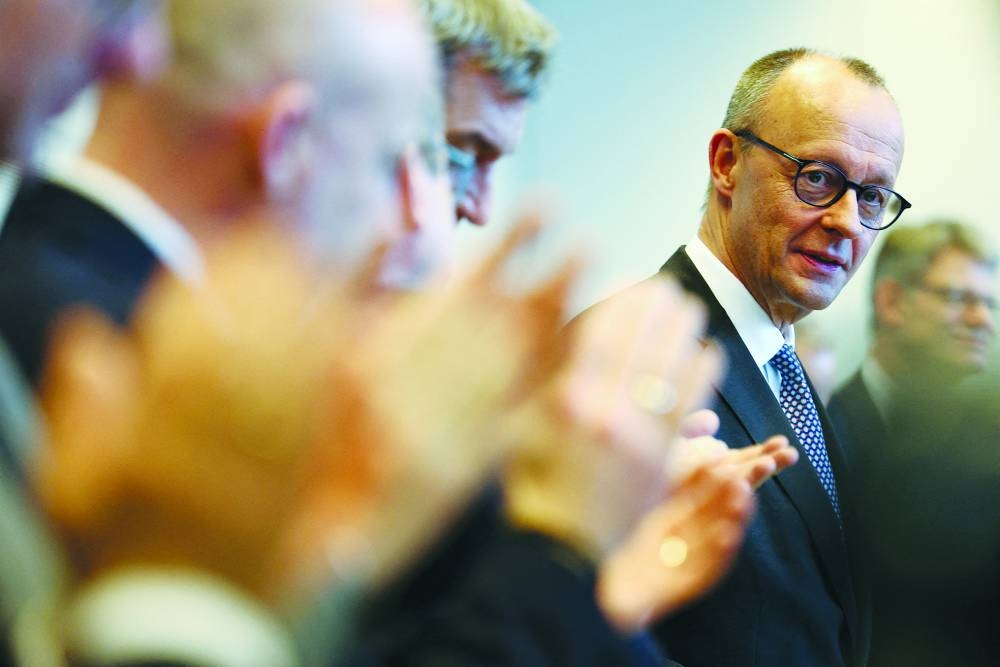And yet, no-one can seriously argue that these two parties “won”. The CDU’s result was its second-worst result of the post-war era, and the SPD’s result was its worst. Any government they form will be burdened with the legacy of similar governments that failed to address Germany’s economic malaise or respond effectively to the new security environment following Russia’s 2014 and 2022 attacks on Ukraine.
The CDU and the SPD are drinking at the proverbial Last Stop Saloon. This may be their final chance to change direction, by returning to what made the German model such a success in the past. National politics must move both lower and higher than the German federal state – lower to the local level, and higher to the European level.
That means returning to subsidiarity: the principle that power is best exercised at the lowest level where effective decisions can be made. This is particularly important for dealing with the former East Germany, where almost every constituency produced majorities for the AfD. Paradoxically, the AfD performed well after campaigning on immigration and internal security, even though immigrants are scarcer in the east than in the west, and even though many victims of inadequate security were immigrants attacked by right-wing thugs.
For eastern Germans to feel less alienated, the parties that have flourished there – both the far left and the far right – must be involved in devising solutions to local problems, many of which are driven by non-migration issues such as poor education and health care.
At the same time, the next German government will have to Europeanise many other major issues. Considering that Germany shares no borders with a non-EU or non-Schengen (visa-free travel area) country, migration is best addressed at the regional level. If Germans want to limit illegal immigration, they must help to strengthen the policing of other borders – notably those of Finland, Poland, Greece, Italy, and Spain.
The security question – and how to finance its solution – is even more pressing, and it may not be soluble at the EU level, where pro-Russian spoilers like Hungary and Slovakia hold a veto. Still, Germany can join a coalition of the willing to mobilise investments in defence. Or, as the Italian legal scholar Federico Fabbrini proposes, it could help revive the 1952 European Defense Community, a treaty drawn up and ratified by four of the six original members of the European Economic Community (the precursor to the European Union).
This second option would even allow for non-EU states to join – the scheme was originally drawn up with the aim of bringing in the United Kingdom. Participation by the only two European nuclear powers, the UK and France, will be essential to replace the role once played by the United States.
Beyond these practical measures, Germany also needs an intellectual re-founding. Social democracy and Christian democracy were always Europe-focused movements. In the postwar era, they worked to establish an economic model that balanced markets with the need for rules to limit economic power.
The “social market economy”, as it came to be known, is worth revisiting now that both Russia and the US have embraced a radically different model of their own. Under the new Russian and (now) American capitalism, business interests increasingly rely on supportive relationships with government, resulting in a model that is not only deeply unstable, but also unproductive and corrosive.
This new US approach follows necessarily from the return of tariffs, currency wars, and other instruments of economic nationalism and autarky. Since domestic manufacturers tend to be harmed by tariffs, which increase their input costs, they will seek exemptions. While friends of the government will get carve-outs, enemies will not. Over time, such arrangements cannot fail to undermine both economic efficiency and political legitimacy.
The challenge for Europeans is to come up with an effective answer to these changes elsewhere. Simply rolling out an industrial policy to favour or subsidise certain sectors would not be politically sustainable. Instead, the situation demands a return to the original vision of the 1950s European Economic Community, which dismantled tariffs within Europe while ensuring enforcement of competition policies and universally applicable rules.
Intellectually, the new world of power politics – where business is treated as a tool of the state – rests on a rejection of “neoliberalism,” which was a long time coming. For his part, Russian President Vladimir Putin started embracing industrial policy more than 20 years ago with his attack on Russia’s largest private oil company, Yukos. Since then, his war on neoliberalism has only intensified, with Russian visas being offered to anyone who renounces the “destructive neoliberal ideological agenda.” At the same time, the US has been embracing tariffs, subsidies, and industrial policies since Donald Trump’s first administration.
But rather than swinging between blind deregulation and aggressive industrial policy, we need a system of rules. If there was ever a time to revive the social market economy that emerged from the 1950s, it is now. — Project Syndicate
- Harold James, Professor of History and International Affairs at Princeton University, is the author, most recently, of Seven Crashes: The Economic Crises That Shaped Globalization.

